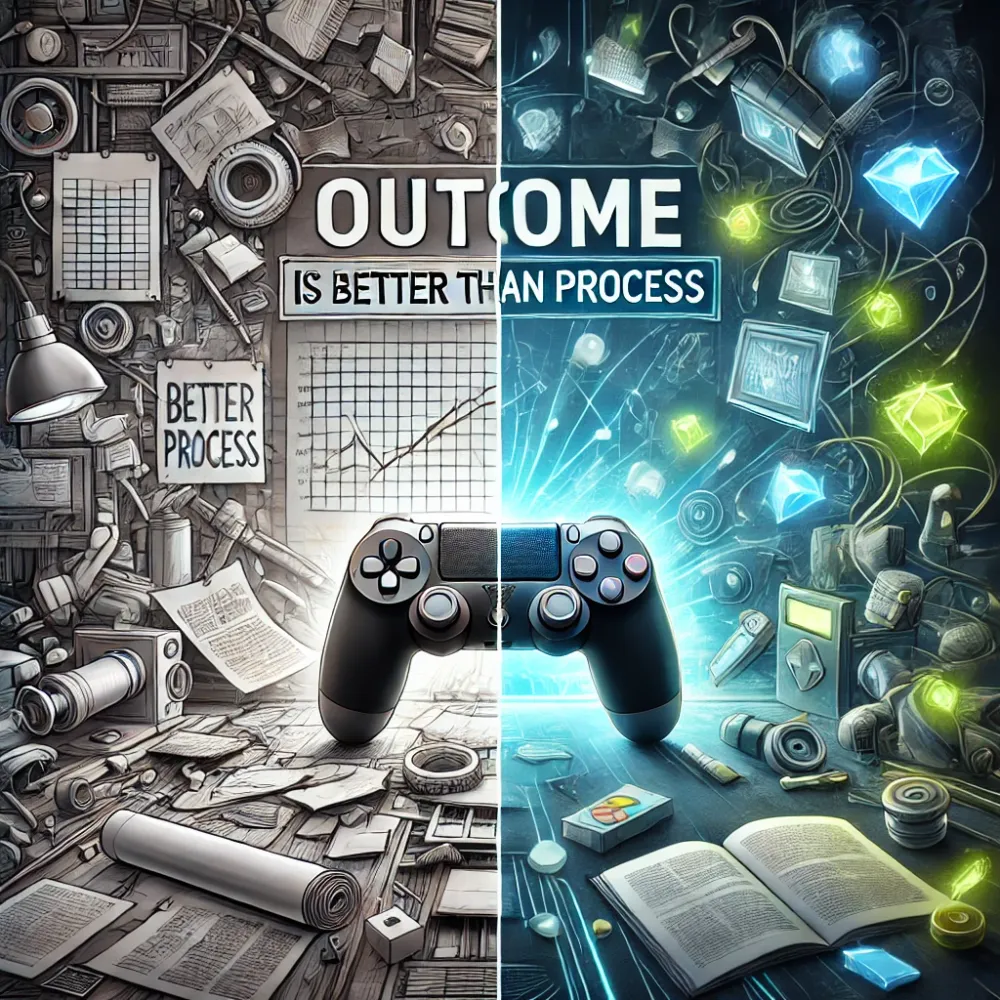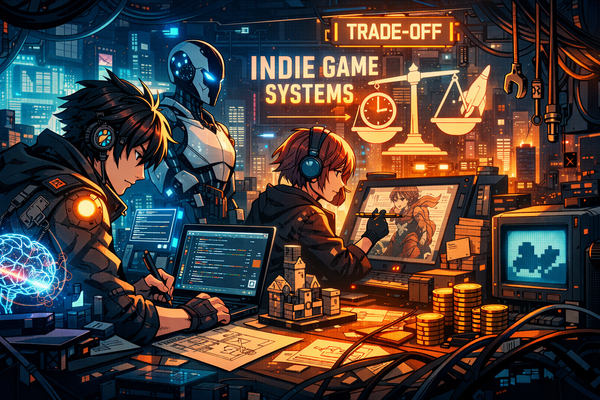Why outcome is better than process in indie game development
The debate between focusing on the process versus the outcome is a recurring one. While the journey of creating a game—the process—is undoubtedly important, it is the outcome that ultimately determines the success or failure of a project. The outcome represents the final product that players will experience, critique, and either love or dismiss. In this context, prioritizing the outcome over the process can lead to more successful and impactful games.
The significance of outcome in game development
The outcome of a game development project is what players interact with, review, and share with others. It is the tangible result of months or even years of work, and it carries the weight of the game's success. A well-executed outcome means that the game is polished, engaging, and meets or exceeds the expectations of its audience. In contrast, a poorly executed outcome, regardless of how innovative or enjoyable the development process was, can lead to negative reviews, poor sales, and a tarnished reputation(MoldStud,Bleeding Edge Studio).
Players rarely consider the challenges developers face during the process of making a game. They judge the game based on the experience it delivers. Therefore, while the process is important for development and learning, the outcome is what ultimately matters in the eyes of the players. This focus on the end result drives developers to prioritize quality, playability, and the overall user experience, ensuring that the game will have a lasting impact in the market.
Balancing process with outcome
While focusing on the outcome is crucial, this does not mean the process should be neglected. The development process is essential for iterating on ideas, refining gameplay mechanics, and addressing issues that arise during production. However, the process should always be aligned with the desired outcome. Developers must remain mindful of their ultimate goal—a successful game that resonates with players—and ensure that every step in the process contributes towards achieving that goal.
In practical terms, this means making tough decisions during development. For instance, cutting features that don’t enhance the overall game experience or revisiting design choices that might be beloved by the development team but don’t serve the end product. It's about being adaptable and willing to make sacrifices in the process to ensure the outcome is as strong as possible.
The consequences of neglecting the outcome
Neglecting the outcome in favor of the process can have significant consequences. Games that are developed with too much focus on the process may end up being overly complex, difficult to understand, or lacking in polish. These games might have interesting concepts or mechanics, but if they don’t translate into a cohesive and enjoyable final product, they are unlikely to succeed in the market.
Moreover, focusing too heavily on the process can lead to "development hell," where projects become bogged down by endless iterations, feature creep, and a lack of clear direction. This often results in games that are either never completed or released in a subpar state, failing to live up to their potential.
Learning from successful outcomes
Many successful indie games serve as examples of how prioritizing the outcome can lead to success. Titles like Celeste and Hollow Knight are praised not just for their innovative mechanics or beautiful art, but for how these elements come together to create a polished, engaging, and memorable experience. The developers of these games were able to focus on the outcome, ensuring that every aspect of the game contributed to a strong and cohesive final product.
These games demonstrate that while the process is important, it is the outcome that players ultimately care about. By keeping the end result in mind throughout development, indie developers can create games that stand out in a crowded market and leave a lasting impression on players.
Prioritizing outcome for success
While the process of developing a game is important for learning, iteration, and creativity, it is the outcome that ultimately determines success in the gaming industry. Indie developers who prioritize the outcome are more likely to create games that resonate with players, receive positive reviews, and achieve commercial success. By focusing on delivering a strong, polished final product, developers can ensure that their hard work pays off in the form of a game that players love and remember.




